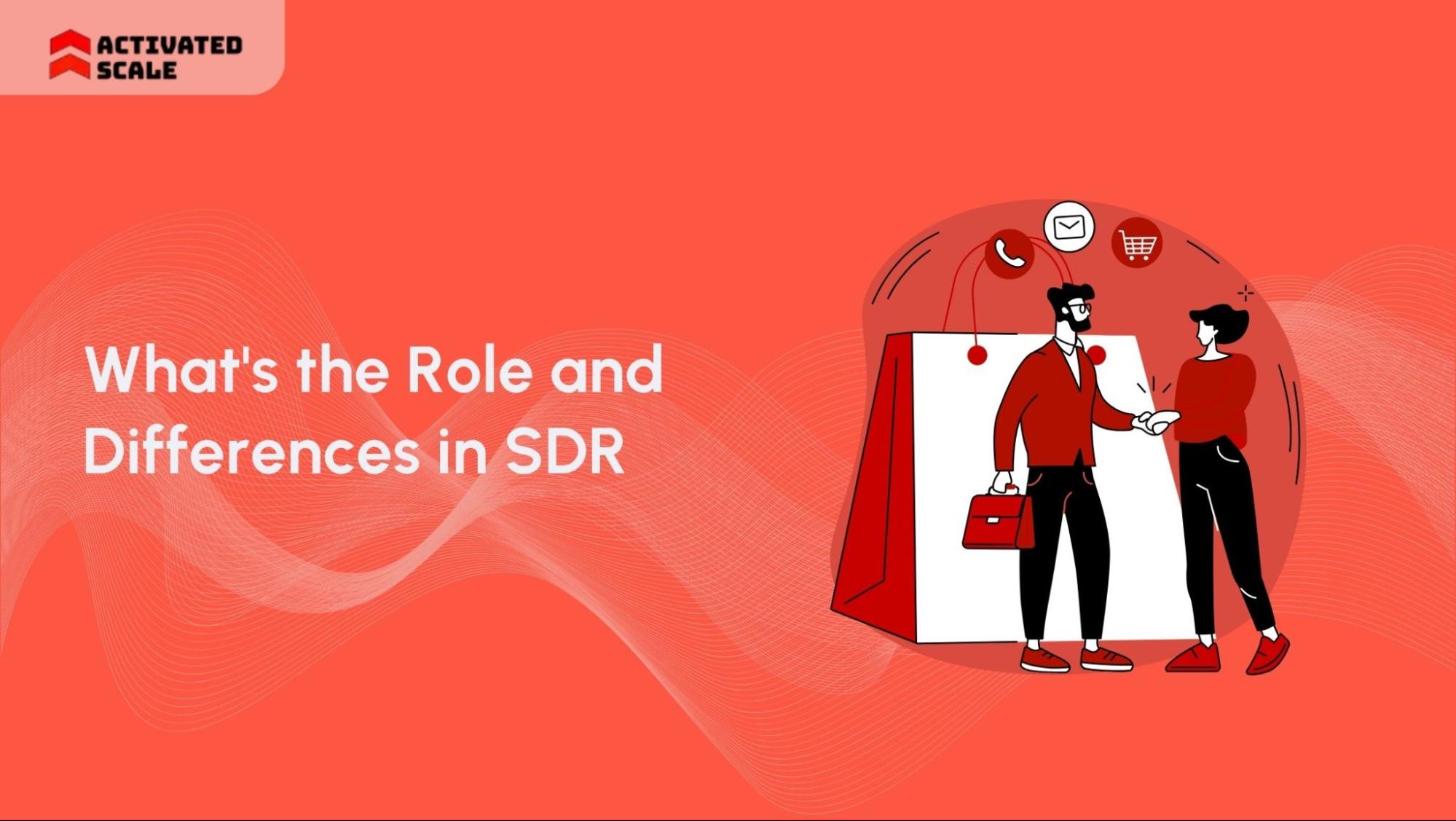Debt settlement negotiations have emerged as a strategic approach for businesses seeking to optimize their recovery rates.
Furthermore, businesses that partner with experienced debt settlement firms report a reduction in collection timeframes and significantly improved customer retention rates compared to aggressive collection tactics.
Understanding effective debt settlement strategies is necessary for organizations grappling with mounting receivables, as they can help maintain healthy cash flow and sustainable growth.
Let’s explore the intricacies of debt settlement, strategies for effectively negotiating it, and how hiring a debt settlement company can help ease your financial burden.
Before we move ahead, let’s briefly overview what debt settlement is.
What is Debt Settlement?
Debt settlement is a strategic financial agreement between creditors and debtors in which the creditor accepts a reduced payment amount to resolve an outstanding debt obligation.
This negotiated approach allows businesses to recover a portion of their receivables rather than risk complete non-payment while providing debtors with a manageable path to resolve their financial obligations.
In practice, debt settlement typically involves negotiating a lump-sum payment that's less than the total amount owed.
For instance, a creditor might agree to accept 60% of the original debt amount as payment in full, effectively "settling" the debt.
This approach differs from traditional payment plans or debt consolidation, as it results in a portion of the debt forgiven upon successful completion of the agreed-upon terms.
South District Group's extensive experience in debt recovery has shown that well-structured debt settlement agreements can serve as an effective tool for businesses.
These agreements often prove particularly valuable when dealing with accounts that have moved into later stages of delinquency or when traditional collection methods have proven unsuccessful.
Now that we have an idea of what debt settlement is let's understand different methods of debt settlement and how you can use them to optimize the debt settlement process.
Debt Settlement Methods
Effective debt settlement employs several proven methodologies that are helpful in optimizing debt settlement efforts.
The process of implementing these methods requires a sophisticated understanding of both the creditor's recovery objectives and the debtor's financial capabilities.
Let’s briefly look at these methods.
- Strategic Principal Reduction
One of the most direct approaches to debt settlement is principal reduction. In this method, creditors agree to accept a reduced total balance, often between 40% and 70% of the original debt amount.
Strategic principal reduction can significantly increase the likelihood of successful debt resolution, particularly for accounts that have remained delinquent for extended periods.
- Interest Rate Modification
Interest rate reduction offers another viable pathway to debt settlement. This approach involves negotiating lower interest rates or eliminating interest charges, making repayment more manageable for the debtor while preserving the principal amount.
Through careful negotiation, creditors can often increase recovery rates by focusing on interest modifications rather than principal reductions in cases where debtors demonstrate some capacity for payment.
By combining analytical insights with proven negotiation strategies, organizations can effectively manage overwhelming debt situations. Tailoring settlement methods to specific circumstances yields optimal results for all parties involved.
Debt Settlement is a good option, but is it feasible for all companies?
The answer is “Yes and No”.
To know this, let’s understand when a company should opt for debt settlement and how it benefits them.
Factors to Consider While Opting For Debt Settlement

You must consider the following factors before deciding whether to go for debt settlement or not.
- Time
Timing is vital to the success of debt settlement negotiations. Organizations achieve optimal results when pursuing a settlement for accounts that have progressed beyond 120 days of delinquency or have already entered collections status.
This timing allows for a clear assessment of the debtor's payment patterns and financial situation while maintaining compliance with industry regulations.
- Evaluation
Financial hardship documentation serves as a fundamental requirement for most successful debt settlements.
Creditors and their representatives, such as South District Group, carefully evaluate evidence of financial difficulty to determine appropriate settlement terms.
This documentation might include cash flow statements, income records, or other financial indicators that demonstrate the debtor's genuine inability to fulfill the original payment obligations.
- Availability of Funds
The availability of settlement funds represents another consideration. Successful negotiations often hinge on the debtor's ability to provide a lump-sum payment or structured settlement payments within a defined timeframe.
South District Group's experience shows that settlements with precise payment capabilities tend to achieve higher success rates and more favorable terms for all parties involved.
- Regulatory and Compliance Requirements
Organizations must also consider the regulatory environment and compliance requirements when planning their settlement initiatives.
With evolving federal and state regulations governing debt collection practices, it becomes imperative to adhere to current compliance standards.
Professional debt recovery firms maintain updated knowledge of these requirements, helping organizations navigate the complex regulatory landscape effectively.
Understanding these considerations helps companies frame the most effective approach to the settlement process.
Moving forward, let's discuss the specific steps involved in debt settlement negotiations.
Steps for DIY Debt Settlement

Taking control of your debt settlement process requires a systematic approach and careful planning. While professional assistance often yields optimal results, understanding these fundamental steps can help you navigate the process effectively.
Step 1: Create a Comprehensive Debt Inventory
First, create a comprehensive list of your creditors and outstanding debts. This inventory should include current balances, interest rates, and payment histories for each account.
Organize these by priority, considering factors like interest rates and total amounts owed. This initial assessment will provide a clear picture of your total debt landscape and help you identify which creditors to approach first.
Step 2: Research Creditor Policies
Before initiating contact, research your creditor’s settlement policies and track record of negotiations. Some creditors may have established hardship programs or specific criteria for settlement consideration.
Understanding these requirements beforehand strengthens your negotiating position and helps set realistic expectations for potential outcomes.
Step 3: Present Your Financial Hardship
When reaching out to creditors, prepare a clear explanation of your financial hardship. Document your current income, essential expenses, and any circumstances that led to your financial difficulties.
This transparency helps establish credibility and demonstrates your genuine intention to resolve the debt despite challenging circumstances.
Also read- Understanding Financial Debt and Ways to Manage It
Step 4: Make Strategic Settlement Offers
During negotiations, start with reasonable offers based on your financial capacity. Industry experts suggest beginning with 30-50% of the total debt amount, though acceptable settlements can vary significantly.
Be prepared to explain how you arrived at your proposed amount and why it represents the maximum you can afford.
Step 5: Secure Written Agreements
Finally, once you reach an agreement, insist on receiving all terms in writing before making any payments.
Review these documents carefully, ensuring they specify the settled amount, payment schedule, and confirmation that the settlement satisfies the entire debt. Keep copies of all correspondence and agreements for your records.
While this DIY approach can be effective, many individuals and businesses find that partnering with experienced debt settlement professionals, such as South District Group, provides significant advantages in achieving optimal settlement terms.
Their established relationships with creditors and deep understanding of industry practices often lead to more favorable outcomes.
Impact on Financial Situation
Understanding the full scope of debt settlement's impact on your financial landscape is necessary for making an informed decision.
This strategy, while potentially beneficial, carries significant long-term implications that warrant careful consideration.
- Credit Report Effects
Debt settlement leaves a lasting imprint on your credit report, typically remaining visible for seven years from the date of settlement.
When a debt settles for less than the full amount, creditors often report it as "settled" or "settled for less than the full amount," which can significantly impact your credit score.
This notation signals to future creditors that you've previously been unable to fulfill your original debt obligations.
- Tax Implications
A lesser-known consequence of debt settlement involves tax liability. The IRS considers forgiven debt as taxable income, which means you may need to pay taxes on the difference between your original debt and the settled amount.
For example, if you settle a $20,000 debt for $12,000, the $8,000 in forgiven debt could be treated as taxable income on your next tax return. It's essential to consult with a tax professional to understand and prepare for these obligations.
- Partial Debt Resolution
While debt settlement can substantially reduce your overall debt burden, it's important to maintain realistic expectations.
Settlement typically results in paying a significant portion of the original debt, often ranging from 50-80%, depending on various factors.
South District Group's extensive experience in negotiating with creditors helps achieve optimal settlement percentages, but complete debt elimination through settlement is rare.
- Financial Recovery Timeline
The journey to financial recovery extends beyond the settlement process. While immediate debt relief is possible, rebuilding your credit profile and establishing new financial relationships requires time and disciplined financial management.
Many organizations find that professional guidance through this recovery phase, particularly from experienced firms like South District Group, can help create a stronger foundation for future financial stability.
Understanding these impacts helps organizations make strategic decisions about their debt management approach, whether through self-directed efforts or with professional assistance.
Now that we have an idea of how debt settlement impacts financial situations let’s explore its pros and cons in the next section.
Pros and Cons of Debt Settlement
Making an informed decision about debt settlement requires careful evaluation of its advantages and disadvantages.
This comprehensive analysis will help organizations determine if debt settlement aligns with their financial recovery goals.
1. Pros
- Debt settlement offers significant cost-saving benefits for organizations facing financial challenges.
- When executed effectively, this approach can reduce the total debt burden by 20-50%, providing substantial relief from overwhelming financial obligations.
- The reduced payment amount allows organizations to allocate resources more strategically and rebuild their financial foundation more quickly than through minimum payments alone.
- It also provides an accelerated timeline for debt resolution. While making minimum payments might stretch debt repayment over decades, debt settlement typically resolves obligations within 2-4 years.
- This shorter timeline helps organizations regain financial stability and redirect resources toward growth and development sooner.
2. Cons
- The debt settlement process demands considerable time and effort, particularly for organizations attempting to negotiate independently.
- Each creditor requires separate negotiations, documentation, and follow-up, creating a complex web of communications and deadlines to manage.
- Without professional guidance, this process can become overwhelming and may yield suboptimal results.
- Credit score implications present another significant challenge. The settlement process involves temporarily suspending payments to facilitate negotiation, which can immediately negatively impact credit scores.
- Additionally, settled accounts appear on credit reports for seven years, potentially affecting future financing opportunities.
- The negotiation process itself requires specialized skills and industry knowledge. Creditors employ professional negotiators, putting inexperienced organizations at a disadvantage.
This disparity in expertise often leads organizations to seek professional assistance from firms like South District Group, whose negotiators understand creditor policies, settlement ranges, and effective negotiation strategies.
3. Strategic Considerations
Organizations must communicate consistently with creditors while demonstrating their inability to pay full amounts and their capability to fulfill settlement agreements. This delicate balance requires careful planning and execution.
Moving forward, it's essential to consider whether managing this process on your own aligns with your organization's capabilities and resources.
For many, the expertise and established creditor relationships offered by professional debt settlement companies provide value that outweighs the additional cost of their services.
The complexity of debt settlement leads many organizations to seek professional guidance from experienced firms like South District Group, which has decades of experience navigating these challenges.
Let's explore what to consider when selecting a debt settlement company.
Also read- 4 Simple Strategies to Quickly Pay Off Credit Card Debt
Hiring a Debt Settlement Company
Selecting a professional debt settlement company can significantly impact your organization's financial recovery journey.
Understanding the advantages and potential challenges of professional debt settlement services can help you make an informed choice that aligns with your financial goals.
- Professional Expertise and Industry Relationships
Professional debt settlement companies bring invaluable expertise to the negotiation process.
South District Group, with over a decade of industry experience, established relationships with creditors, and a deep understanding of collection practices can lead to more favorable settlements.
These relationships, built through years of successful negotiations, often result in standardized settlement procedures and more predictable outcomes.
The sophisticated analytics and account management methodologies employed by professional firms provide strategic advantages in negotiations.
For instance, South District Group's comprehensive collection strategy combines advanced technological systems with proven negotiation techniques.
It enables you to achieve optimal settlement terms while maintaining compliance with legal and ethical standards.
- Cost-Benefit Analysis
When evaluating debt settlement companies, it's essential to understand their fee structure and compare it against potential savings.
While professional services involve costs ranging from 15% to 25% of the enrolled debt amount, their expertise often results in more significant debt reductions and more favorable settlement terms than self-negotiated agreements.
The time and resource savings also merit consideration. Professional firms handle all creditor communications, documentation, and negotiations, allowing your organization to focus on core operations and growth.
This delegation of complex settlement processes to experienced professionals often proves more cost-effective than diverting internal resources to manage negotiations.
- Due Diligence in Selection
Selecting a reputable debt settlement company requires careful evaluation.
Look for companies with:
- Established track records and verifiable success rates
- Transparent fee structures and settlement processes
- Comprehensive compliance programs and ethical standards
- Strong technological infrastructure for account management
- Professional accreditations and industry certifications
South District Group exemplifies these qualities through its sophisticated account management methodology, strong focus on client attention, and adherence to high legal and ethical standards across its nationwide network of legal representatives.
The right debt settlement partner can transform a challenging financial situation into an opportunity for sustainable recovery and growth.
Conclusion
Navigating through financial challenges requires a balanced approach that considers both immediate relief and long-term financial stability.
Debt settlement emerges as a powerful tool for organizations seeking to manage their financial obligations effectively while maintaining operational continuity.
The process, whether pursued independently or through professional assistance, offers a pathway to reduced debt burdens and accelerated financial recovery.
You don’t need to navigate the journey to financial stability alone. With the right partner, successful debt settlement becomes a pathway to renewed financial strength and operational success.
South District Group's comprehensive approach exemplifies how professional debt settlement services can transform challenging financial situations into opportunities for sustainable recovery.
Their nationwide network of legal representatives, combined with advanced technological infrastructure, enables them to achieve favorable resolutions while maintaining the value of their client’s debt settlements.
The right strategy could be just one phone call away!
Contact South District Group Today to explore how their expertise in legal-based collection solutions can help transform your financial challenges into opportunities for growth and stability.
The Ultimate Guide to Hiring a Salesperson!
Get the step-by-step guide to hiring, onboarding, and ensuring success!
_edi.png)




